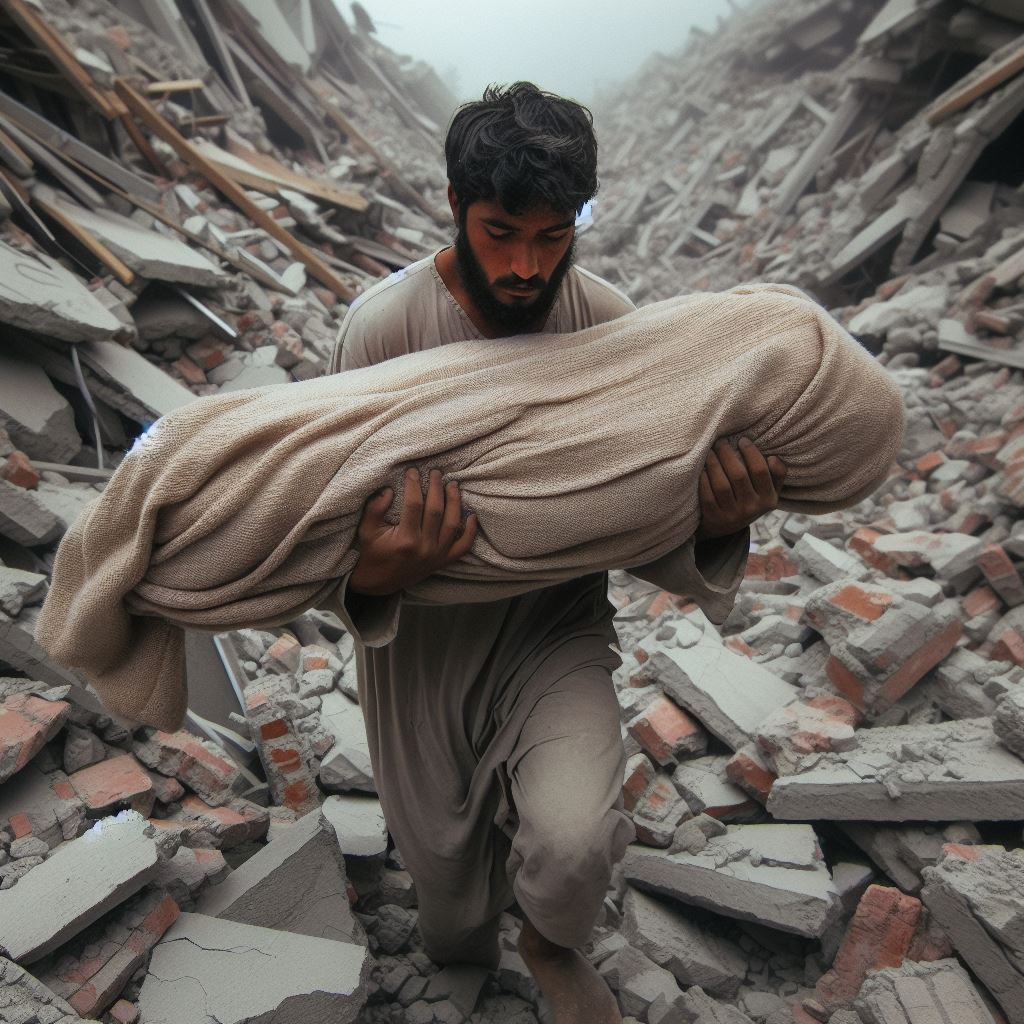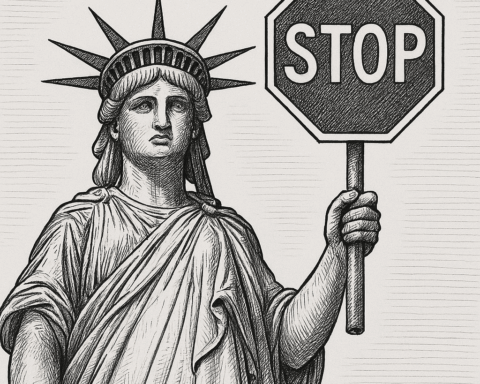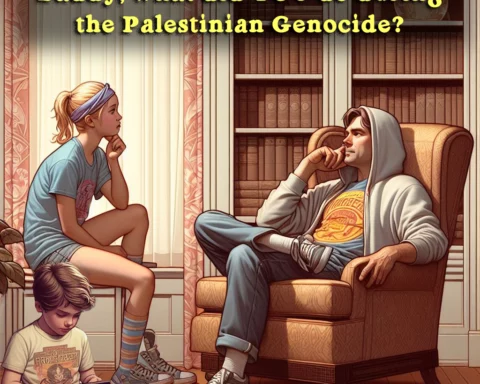I know that what’s happening in Palestine is a deeply contentious topic. I know many of you have strong feelings one way or another. If you didn’t, I’d question your humanity How do I know? Because I lost a bunch of subscribers and supporters the last time I mentioned it. But I have to bring it up again.
Yesterday, the International Court of Justice (ICJ) issued a determination on whether or not what’s occurring in Gaza might meet the legal definition of a particular word. Legal definitions matter in courts of law, not in the human heart. I want you to pause and take a breath and let your own heart be the judge for moment.
As of yesterday, Israeli Defense Forces (IDF) have killed more than 26,000 Palestinian civilians. At least 10,000 of those were children. Another 62,681 Palestinian have been wounded. Thousands are missing and presumed dead. Disease is beginning to spread in increasingly squalid and unsanitary refugee camps, at least until those camps themselves are bombed, which happens with horrifying frequency.
Aid agency OXFAM International notes that “Israel’s military is killing Palestinians at an average rate of 250 people a day which exceeds the daily death toll of any other major conflict [this century].”
The United Nations last week confirmed warnings that the entire population of Gaza — some 2.3 million people — is facing crisis levels of hunger, with 576,600 people at catastrophic – or starvation – levels. Famine is expected to sweep across all of Gaza very, very soon.
The murder of 1,200 Israeli civilians by Hamas on October 7 is indefensible and should cause outrage. The revenge being meted out against Gazans should tear at the very soul. Our hands, as citizens of the United States, as residents of the Berkshires, are not entirely clean in this slaughter. The U.S. continues to send more of the world’s most deadly weapons to Israel, even as the ICJ ruling triggered calls on all nations to cut off military support for both sides.
Two of the world’s largest weapons manufacturers have a huge footprint right here in our county. The luxury of our comfort, our economic stability right here at home, is paid for, drop by drop, with the blood of Palestinians, mostly women and children.
So forget the word that’s causing such rage and vitriol, We, as citizens, don’t need to arbitrate language. We only need to listen to our conscience, collectively and individually, and decide whether or not we can look ourselves in the mirror and honestly say, out loud, “I am perfectly comfortable with the unparalleled slaughter of innocent civilians being carried out with the support of my country and my community.”
The ICJ stopped short of ordering a cease fire. Instead they issued injunctions against various activities that would be difficult to carry out without falling under the definition being debated. Israel has not slowed its offense, leading most observers to expect they will take the ICJ admonishments about as seriously as they consider those of the United States, which is to say, not at all.
Israel says that it plans to continue its assault on Gaza at least until the end of the year. By that time, health officials predict, starvation and disease will have decimated whatever portion of the population has not been killed by warfare. Israel Defense Minister Yoav Gallant has admitted that Israel cannot continue its ground invasion and air strikes without the weapons supplied by the United States.
The Carnegie Endowment for International Peace wrote last week that “…the response of U.S. officials has been milquetoast, dismissing the case as meritless and without any factual basis. At the same time, the White House has also asserted that it has made no legal assessment about Israel’s conduct in Gaza or how U.S. weapons may have been misused.”
In 1997, Congress approved the initial Leahy laws, a set of human rights regulations named after Vermont senator, Patrick Leahy, who introduced them. These laws stop military assistance to foreign military forces if the Pentagon and the State Department find that a country has committed serious human rights violations, like shooting civilians or executing prisoners without a trial. The suspension of aid continues until the guilty country prosecutes those responsible. The aim is to use American military aid as a tool to hold allies accountable and improve their human rights practices.
The Biden administration could enforce the Leahy laws at any time it chooses to limit assistance to Israeli military forces. This could affect about $3.3 billion in yearly foreign military funding for Israel. Of this amount, at least $2.5 billion is designated for purchasing arms from American defense companies. The restrictions would also stop “emergency” aid and shipments of weapons to the IDF, such as Biden’s requested $14.3 billion worth of weapons to Israel as part of a proposed $106 billion aid package that would provide support for both Israel and Ukraine.
Biden has repeatedly refused to set any humanitarian conditions on Israel’s use of bombs, artillery, and other weaponry in its annihilation of Gaza. For his part Israeli Prime Minister Benjamin Netanyahu likened his country’s collective punishment of the Palestinians to a Biblical retribution ordered by God: “Now go and smite Amalek, and utterly destroy all that they have, and spare them not; but slay both man and woman, infant and suckling, ox and sheep, camel and ass.”
Both U.S. Secretary of State Anthony Blinken and Israeli officials (as well as governments and NGOs worldwide) have acknowledged that there is “no military solution” to the conflict.
If there can be no military solution, why is the United States continuing to insist on sending weapons of war to the immensely more powerful Israeli army? In fact, after yesterday’s ruling at the ICJ, legal scholars are increasingly of the opinion that the United States will be found complicit in Israel’s alleged war crimes if brought before the Hague. Not a good look for Captain America.
The wholesale carnage in Gaza continues because good people are doing nothing. Polls show that eighty percent of Democrats and sixty percent of Americans as a whole support a cease fire in Gaza. Yet last month, the United states voted against 153 other countries on a resolution last month co-sponsored by more than 100 UN member states demanding an “immediate humanitarian ceasefire” in Gaza. The U.S. continues to abet the Israel’s killing and maiming of civilians and creating the conditions of famine and disease because the American people have been largely silent. So little would be required of us to bring to bear the weight of our disapproval of these atrocities such that Congress and the White House would be forced to comply with the will of the People.
At the moment, all branches of the Federal Government can assume that our collective, relative silence means that we, the People, simply don’t care enough about the destruction of human life to petition our elected leaders to put a stop to the carnage. And if we can’t be bothered merely to raise our voices in the most legitimate of dissent, we shouldn’t be surprised when the world condemns us as accomplices to genocide.
With all faith and affection,
Jay Velázquez
Editor-in-Chief, The Greylock Glass

















